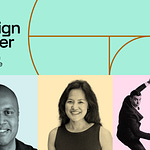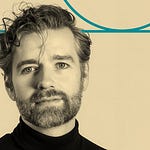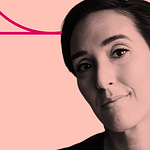The Ministry of Silly Walks. The Cheese Shop. French Taunting. If you haven’t seen any of these Monty Python sketches before, do us a favor and go watch one or two of them. You’ll discover—or re-discover—why our guest for this episode is a creative comic legend.
John Cleese starred in and co-wrote the award-winning series Fawlty Towers, was nominated for an Academy Award for the screenplay of A Fish Called Wanda, and even has a species of lemur named after him (Cleese’s wooly lemur, Avahi cleesei). He’s also an expert on the creative process, and so if you’re looking for a new framework to level-up your own workflow, his book Creativity: A Short and Cheerful Guide is a great resource.
We talk with John about his new book, and also about creative collaboration in the midst of friction, how to be comfortable with ambiguity, and creating boundaries of space and time to get in a creative mode. We also get to ask him a question that’s been bugging us ever since we first watched Monty Python and The Holy Grail.
After everything that happened in 2020, we can all use a little more laughter in our lives. We hope our interview with John sparks some joy, and leaves you with some new creative tools. Thanks for listening.
Bio
John Cleese is an English actor, comedian, writer, and film producer. He achieved success at the Edinburgh Festival Fringe and as a scriptwriter and performer on The Frost Report. In the late 1960s, he co-founded Monty Python, the comedy troupe responsible for the sketch show Monty Python's Flying Circus and the four Monty Python films, And Now for Something Completely Different, Monty Python and the Holy Grail, Life of Brian, and The Meaning of Life.
In the mid-1970s, Cleese and his first wife, Connie Booth, co-wrote and starred in the British sitcom Fawlty Towers. Later, he co-starred with Kevin Kline, Jamie Lee Curtis, and former Python colleague Michael Palin in A Fish Called Wanda and Fierce Creatures. He also starred in Clockwise, and has appeared in many other films, including two James Bond films, two Harry Potter films, and the last three Shrek films. He is also the author of Creativity: A Short and Cheerful Guide.
Help us make the show even better by taking a short survey: www.dbtr.co/survey
If you're interested in sponsoring the show, please contact us at: sponsors@thecuriositydepartment.com
If you'd like to submit a guest idea, please contact us at: contact@thecuriositydepartment.com
This episode is brought to you by:
Fable: Build inclusive products:
https://makeitfable.com/designbetter/
Freehand by InVision: The intelligent whiteboard that's half the price of Miro and Mural:
Methodical Coffee: Roasted, blended, brewed, served and perfected by verified coffee nerds:
(use code "designbetter" for 10% off of your order).
Athletic Greens: Build a foundation for better health: http://athleticgreens.com/designbetter
Summary (via Chat GPT 🤖)
In this 2021 episode of the Design Better Podcast, John Cleese, a renowned actor, comedian, and writer, shares his insights on creativity, collaboration, and the creative process. The key takeaways from the interview are:
🎈Importance of Play: Cleese emphasizes the significance of play in the creative process. A playful mindset allows individuals to explore new ideas, experiment, and take risks without fear of failure.
😮 Open and Closed Modes: He discusses the concept of "open" and "closed" modes of thinking. Open mode is when the mind is relaxed and open to new ideas, while closed mode is when the mind is focused on executing tasks. To foster creativity, it's essential to spend time in open mode.
🕥 Space, Time, Time, Confidence, and Humor: Cleese highlights five essential factors for nurturing creativity: having a dedicated space for creative thinking, setting aside uninterrupted time, allowing sufficient time for ideas to incubate, building confidence in one's creative abilities, and using humor to facilitate open-mindedness.
🤝 Collaborative Creativity: Cleese also emphasizes the importance of collaboration in the creative process. Working with others brings diverse perspectives, enriching ideas and resulting in better outcomes.
😠 Dealing with Criticism: He advises that creators should separate their ego from their work and view criticism as an opportunity to learn and grow. It is crucial to remain open to feedback and avoid becoming defensive.
🙌 Overcoming Creative Blocks: To overcome creative blocks, Cleese suggests taking breaks, engaging in physical activities, and using humor to shift one's mindset. Additionally, he stresses the importance of not forcing ideas and allowing the subconscious to contribute to the creative process.
Throughout the interview, Cleese shares anecdotes and wisdom from his career, providing valuable insights for anyone looking to enhance their creativity and collaboration skills.
Transcript
Eli Woolery (00:00):
We're very excited to talk about your book, creativity and creativity. In general,
John Cleese (00:05):
I can give you a brief rundown of how I came to write it. I mean, I would say that there are just a small number of very simple principles involved. One is that anything really new comes from the unconscious? And the second is that you could only get in touch with the cand that we've learned by and large not to play, partly because it's not encouraged in schools. And partly as we get older, we have too many responsibilities. So if we want to play, what we need to do is to create a space where we're not interrupted and where for about an hour and a quarter roundabout that we just play with the idea and we mustn't be interrupted. So we have to create boundaries of space. And then we create a boundary of time of very fixed periods so that we start here and then we finish there.
John Cleese (01:05):
And then after about 15 minutes, all the worries and things that we ought to be doing start settling, and then we can stop getting in contact with our unconscious and seeing what it coughs up to other points. What it cuffs up is not neatly typed out on bits of paper. It's in the language of dreams, the language of the unconscious. So they're very subtle, very subtle prompt terms. I mean, Einstein himself said of his own creative process that he could never describe in words, what he was thinking during the process that he was thinking. And then finally you come up with something you've got to allow it to grow because you can't start criticizing it until you really understand what you might be coming out with. Then you have to bring your normal everyday critical mind into being, just see whether it's a good idea or not. That might not be, it might be, or maybe you keep a bit throw away the rest and then go back into creative mode to build on what you actually like. So that's really it. There's no need to read the book and it only takes a day.
Eli Woolery (02:13):
John, you, you just spoke a lot about play and we're, we're curious about how your childhood informed the way you think about creativity.
John Cleese (02:21):
I remember about 40 years ago, Sammy Davis Jr. You too old to remember him. No. He said, he thought a boring childhood was a boon. So far as creativity was concerned. And I was an only child and my parents moved around a lot and I spent a lot of time on my own. So I think I developed a sort of ability just to sit there and amuse myself, but it never occurred to anyone that I was creative least of all to me because creative meant you could paint quite well. I mean, that's what mentioned in English school. And I think it's really helpful to people to realize that although they could get from school, assuming that they're not creative, it's just because the schooling system doesn't bully it out of us. It just doesn't reward any sides of creativity. I told a story when I was about 16, my English teacher told the form to write an essay about time.
John Cleese (03:23):
And I wrote the whole essay about the fact that I didn't have time to write the essay I apologized at the end of it. That always makes people smile. That's kinda neat. But you know, the teacher said this isn't a proper SATs, so it's not the was angry with me. It was just this doesn't count. So that a little creative sparks, I think are often not recognized by teachers for the simple reason, the teachers aren't themselves, very playful, very creative. And how can you see it in someone else if you don't have it yourself? So that's one reason. And the other is that as you grow up, you have more responsibilities and the play has to be separate from everyday life. So I arrived at Cambridge without any idea that I had anything creative about me. I got into Cambridge on science and it's hard to be a 17 year old scientists. Who's creative. It was only when I joined the, the Footlights club and discovered that I could write stuff that I suddenly thought, Oh, and then I noticed strange things happening. Like clearly my mind worked on things when I was asleep. And once I began to realize that I got very interested in cause my primary interest in psychology. So I built from that.
Aarron Walter (04:41):
John, maybe we could talk a little bit about writing because a lot of people think about writing as a thinking mechanism right now you're in a spot and you're doing some writing on a, on a movie script. How do you think about writing as a way to explore ideas that you don't even know that you have yet?
John Cleese (04:59):
Well, the whole point about play is it's unpredictable. You see in our culture now what people want more than anything else is clarity. Everybody wants clarity and clarity quickly. And one of the characteristics of creative people is that they can live in confusion, quite happily, if quite enjoy it, they don't feel they have to be clear about everything. And I think that's incredibly important that you don't really know where you're going. And if you listen and keep stopping in time and take an hour off and just playing, I make, write everything with a pencil. You suddenly just get an idea. And then if you've got a large block of writing paper, I go to material shops and get the biggest pads. And if I get an idea and I think, Hmm, that's interesting. I wonder if that would fit. And I make a note of it about that because it wouldn't be at the beginning of the film, but it would be in the first half.
John Cleese (05:55):
And then I get another idea. And I think now that could be something to do with the ending. So I just stopped putting things on that, but that's one particular kind of writing. Sometimes I'm creative in a small sense, which is that I can take a more complicated set of ideas and simplify them. So I'm quite a good popularizer. And I think that that's a slightly similar process because it's very much a question you're going to the narrative all the time and saying, well, what follows this? What follows that? Whether it's a logical following or an emotional following or the case of a movie, it's got to be both. The plot has got to be logical, but also the emotions have got to be believable in the characters.
Eli Woolery (06:35):
John, we're curious about, um, creative collaboration and famously with Monty Python. You had these wonderful collaborators, but I imagine it wasn't always a smooth, smooth process. So how do you go about collaborating with people that maybe you don't always get on with that well, or that you have some amount of friction with?
John Cleese (06:53):
Well, that's the problem really? When you start writing with one other person, it's a little bit like dating because the first thing is you want to impress them. You don't want to say stupid things. So you edit stuff a lot. And until you kind of trust each other and realize you like each other, and there's an acceptance, it's hard just to free real and be spontaneous. So that's one thought. Another thought I really learned by experience. And I can't quite explain it is that if you have full people trying to write something at the same time, one of them will always not light was just being suggested. So you can't make any progress before people seem so random, but it's true. You can make progress with three threes. Okay. But I think in a way two's an ideal number for something like comedy in particular, which has got a kind of objective quality to it, because is it funny or is it not funny?
John Cleese (07:49):
You see what I mean? If you're writing a novel or something, that's, farmary about emotion rather than plot, then you can do that on your own. Particularly if it's an autobiography it's more personal, but when you're trying to make people laugh, it's very helpful to have a sounding board. And I worked with Chapman a lot because he has extraordinary knack. It was very rare, which is if he thought something was funny, the audience would. So he was absolutely invaluable for the first five years. Now I've got to the point where I have a pretty good idea, whether it will be amusing, but what I really can't tell, even at my advanced stages, whether it'll be a little bit amusing or a lot amusing, sometimes I write things I think are hilarious and they just get sort of, you know, reasonable amount of laughter.
John Cleese (08:33):
And then I write something that I think is fairly sort of straightforward and obvious, and it gets a huge laugh. So it's very helpful to have another person there to give you a bit of confidence and to bounce things off. And the other thing it causes that you build on each other's ideas. So you can finish up by getting somewhere that you would never have got on your own because of course a misunderstanding can lead to something wonderful. So it doesn't really matter when you're creating. There's no such thing as a mistake. And it's easy to remember that when you're on your road, but you, you have to realize it's true. If he was someone else, you might mistake completely what the guy says, but it might put an idea in your mind that you wouldn't have had otherwise. So I would say if you have a big group freewheeling, and the only way it can work is to have someone who's in charge who understands the process.
John Cleese (09:20):
Otherwise it's just, as you were saying, you get the clashes of personality. The guy in charge has got to understand the process. He's got to be open to learning and not have some idea at the back of his mind that he's got to get them all to agree to because creative people spot that in the moment and it makes him very angry. So he has to be open and he has them to quieten down the most dominant people. You know, the Pence is new, keep on talking, has to be able to shut them up and to encourage the shy people, the more introverted people to speak up. And he has to keep that balance going and then keep it open and tosses along and understand the creative process so that he doesn't give them 10 minutes and then something else, he allows the group to get comfortable with each other and then guides them. And, and the sort of very good rule in that in a group is never to criticize someone only to ask a question. So if you disagree with something you say, well, what do you mean by that? What have you got in your mind? I discovered with Terry Johns, I very frequently disagree with Terry, but I then dissolve if I asked him in real detail, what he was talking about, I then see what he was getting at. Whereas up to that point, it just sounded to me rubbish.
Aarron Walter (10:37):
You mentioned the idea of confidence, and I know that's in the framework in your book that that's one of the five tenants of getting to creativity. Can you talk to us a bit about, especially for thinking about people who are early on in their career and they're kind of like getting their bearings with who they are and their craft. How do you develop that confidence or create space for that confidence to shine?
John Cleese (11:02):
I think it really comes confidence really comes from doing it a lot, doing anything a lot. When you first become an actor, the great fear is you're going to forget your lines. And the main reason you forget your lines is you suddenly start thinking, I'm going to forget my lines. They forget them. If you've been doing it a few times and not forgotten your lines, that's sort of reassures you that maybe, you know, forget them this time. It's just a question doing it again and again and again. And of course, if you're on your own, you don't have quite the same fear of failure, but what you do have a voice in your head saying, you're not good enough. You can't do this. You don't have any ability. Everybody gets that. And the thing is, you can't control your thoughts, but you can control the amount of energy you give them.
John Cleese (11:51):
So once you have to know, is you'll good days and bad days, and the bad days are not a waste of time because it's like that preparation for new days, great rebates. And once said, you can't have a new idea, or if you haven't got rid of another one. So when I'm in an infertile period, I tend to think now, well maybe something's going on down there. They're clearing a space for a new idea. And I don't panic. I don't beat myself up because that simply makes it worse. But if you see that the in fertile periods are just part of the process and you're going to have some, and then you'll have further up periods that would encourage you just to sit there and keep going, which is really all you have to do.
Eli Woolery (12:30):
You gave a talk back in 2014, I think to the London screenwriters festival also on creativity, which I thought was wonderful. And you talked there a bit about closed mode versus open mode and design. We've talked a lot about divergent thinking and I think there's some parallels. Could you talk a little bit about that? How you'd go about going from closed mode to open mode and
John Cleese (12:51):
Yes, it was you're quite right. The start of my thinking was this business of closed mode, which is sometimes when you made a decision, you should just go ahead and implement it and not stop every 20 minutes and think, well, was it a good decision? You just have to go ahead with it for some time until you get feedback saying, no, no, no, but you need to keep going and not stop every time you have doubts. So that's the closed mode or somebody said, if you are attacking a machine gun nest, it doesn't really help to admire the scenery or try to see the funny side of it, just attack. And then afterwards you think well, if we have to do it again, we can do certain things better, but you don't have those thoughts in the middle of it. There are some times you just implement it.
John Cleese (13:38):
And that's the closed mode, where the open mode is very different. Obviously open mode is listening to feedback from the world and listening to your own thoughts and feelings and saying, "well, how do I feel about this?" Cause it's an awful lot of it's about feeling. I mean, I can tell you about experiments. There's a very clever Chicago psychologist called Mihaly Csikszentmihalyi, Hungarian— you know him, you're nodding. He wrote Flow. He did a, he did an experiment with the Chicago Institute of Art. And they just got a lot of people. I gave him a desk each and there was a table with lots of objects on it. And they had to choose objects and draw a still life. And you could see that the students just fell into two categories. There were people who went straight up very quickly would choose the peices and come back and do the arrangement and then start drawing it.
John Cleese (14:34):
And from very early on, you could see what the composition was going to be. And there were other people who behaved quite differently. They'd go up and instead of just choosing the objects, they pick them up and they'd almost toss them in the air or smell them, or sort of feel them. And then they'd pick up another one. They'd take much longer to choose the original objects that they wanted. And then they bring them back to their desk. And again, they would take much longer to get the configuration right. In fact, they might take a couple of them back to the table and replace them with something else. And then after that, they would take longer to get going on the composition and they'd change it more often. And finally, they come up with something.
John Cleese (15:15):
And when they showed the two lots of work, because they did—you know, they could sort of divide them into these two ways of approaching. they discovered the professional artists said all the good ones are the people who taken a long time to feel it out, instead of the people who've done it with the front of the mind. And later on a follow-up study showed that the ones who'd done well in that test, were the ones who were making a living, a nice living out in the world, doing creative things that the other ones weren't.
John Cleese (15:44):
So it's a, it's very much a question of trusting instinct and feeling and all those things like Einstein once said that muscular sensations were part of his way of thinking. It's a question of getting into that feeling side, which of course, a lot of people are very uncomfortable with it because they think it's unscientific. Well, if Einstein says them in the book, I talk about Edison, Edison, who had more patents than anyone else, he used to think he got his best idea somewhere between being very relaxed and dozing off.
John Cleese (16:16):
And he tried to be in that area, that psychological area, when he was looking for ideas and he used to hold bull bearings in his right hand and put a metal plate on the floor. And if he, if he does it off, he dropped the ball bearings and that would wake him up. And he'd go back to that state between pure clarity and sleep. So you see people who think that you can only make progress if you're thinking clearly, are simply wrong. It's fine, if it's something that doesn't need creativity. If you're an accountant, I know about a creative accountant as something else. If you're an accountant you know, pretty much how much you can do in the day. So there's very little doubt. Whereas Claude Monet —whp was one of the greatest of all the impressionists, as we know —at the age of 80, when he went out to paint, hand used to shake of nerves because he wasn't sure if he could do it this day. And creative people could never be sure that it's going to happen today because you can't order your unconscious around. You have to just wait and coax it and be nice to it. And sometimes trick it like tip of the tongue. If you can't think of a word, you pursue it too hard. You can't get to it. It disappears. And then five minutes later, it's in your head, you can't control it and hit it with a state. You have to know how to work with your own conscious
Aarron Walter (17:37):
John and your, your book. You've got this very lucid framework that guides people into understanding and creative process. And you talk a lot about how it's not a thing that we're born with. It's something that if we kind of understand this, we can unpack that and go back to that creative space. That feeling space you just described, it's the sort of thing that it takes a life and a career of experience and failure and success and everything in between to arrive at that final recipe. Were there moments in your life where like an aha moment where you started to identify, okay, the space thing, this is clearly an important part of my creative process or time the difference?
John Cleese (18:16):
Yes, there was some of my own, which is going to bed, not having managed to find a punchline to a sketch and waking up in the morning, making a cup of coffee, sitting at my desk and suddenly it's obvious. And you think what was the problem last night? Well, what's happened is you might as be thinking about it when you were asleep. That was a huge discovery to me. And then I wrote a script with Chapman and lost it and I knew he'd be cross with me. So I rewrote it for memory and then found the original. When I compared them, the rewritten one was much better. And he had, I hadn't been trying to make it better. You see what I mean? I was just trying to remember it. So my mind must have been working on it. Then I came across some research by a fellow called McKinnon who was particularly interested in professionals and especially architects.
John Cleese (19:05):
And he found that the great architects were quite simply the ones who could play because he asked creative architects and uncreative architects. So he didn't tell them why he was talking. You know, what was the difference in that days? And it was just the creative ones could play. And they could also sit happily in the middle of confusion and not understanding what was going on in their mind. Whereas the uncreative ones had to have everything much clearer and reach decisions as soon as they could, because it made them feel so uncomfortable if they hadn't made the decision. Well, sometimes people say, well, that means you're indecisive. No, because when you have to make a decision as a real world question, you know, it's two o'clock today or November. So make it then make it today or November that's real world. You don't mess around with that. But once you know, when you've got to make the decision, don't make it before then, because y'all cause you might get new information, but what's more important. Creativity is you may get no ideas.
Eli Woolery (20:06):
The book, one bit of advice you give is to kill your darlings, which I think you said you learned from William Goldman,
John Cleese (20:13):
William Faulkner. Oh really? But it's absolutely true. But older rises can do that more easily. I've noticed that young writers get involved, mostly attached to everything they've written and they find it hard just to let it go and override right. Symphony now it's all right. That's all such a good idea. There I come up with a better one and that's a much healthier attitude and the alley great things to do when you're trying to assess whether what you've written is any good is to get away from it from a time is I don't understand why, but if you get away from me, when you come back to it, there's a real clarity about what works and what doesn't work.
Eli Woolery (20:48):
John, you've got a birthday coming up
John Cleese (20:52):
81. Yeah.
Aarron Walter (20:53):
Yeah. And I find that birthdays are always a great time to just take stock of where you've been and what you've been up to and, you know, just observing your career and your life. You've brought lasting joy to so many people around the world for a while.
John Cleese (21:08):
No, I know it's true. And I'm very happy about it. I used to deny it when I was younger. I thought, well, I'm just a call mate. But what you realize is the humorous very important. It makes people feel better. And of course, a really good sense of humor as a sense of perspective, which is what I think notably the woke people don't
Aarron Walter (21:27):
Yeah. I mentioned to my children this morning, I was talking to nearly headless Nick and they got a big kick out of it, but I wonder, you know, just reflecting on your career and your life, what are you most proud of? Not necessarily the career highlight, but the thing that you personally feel the most proud of?
John Cleese (21:43):
Nothing in particular. I mean, I know I've done three or four, very good things, 40 times, Holy grail, the best of the PIF and film fish called Wanda. And I was very, very happy with my older biography. It was very sometimes when you set out you achieve what you wanted to mostly, you know, so those are the things that stand out, but what is always matches with me more than anything else is the sense of what is the meaning of life. And I've always felt that we don't live just in a materialist reductionist universe. So I have a lot of interest in siphoned almond, and that's something that I would love before I die to do programs about it.
Eli Woolery (22:26):
You also speak about how creative people need to be comfortable with a certain amount of ambiguity. How do you develop that?
John Cleese (22:33):
I think by experience, I mean, I had a classic left hemisphere education. I got into Cambridge on science and I then switched to law. One is pretty hard to be creative if you're 20 years of age in either law science don't know enough about it, but it was being in the Footlights. The, that released it a lot. I think what happened was is you just get to trust the process and you trust the process by doing it and not by doing it again and again and again, and finding that some of the time it works, not all of the time because you can't bully the unconscious order it about, but some of the time it works. And then you get used to not being clear about things. I think Richard Feynman said something to the effect that he said, yeah, I'd rather live in a pleasant state of doubt about most things than be such in about a whole lot of things that I know perfectly well. I can't be sitting
Aarron Walter (23:35):
In the course of your career. And especially in the early part of your career, kind of developing this creative muscle. Was there like a moment where you started to think about it? I read some early stories of when you were in school, some mischief about a statue walking to the toilet and some spray paint and so forth,
John Cleese (23:55):
Like happened to me when I went to the school that I was told that story about people 20 years before you get a lot of these sort of apocryphal things attached to me is more interesting in this John cleans than if it's Brian, nobody who became an accountant. I don't know if there was a particular mama. Actually, there was one that is quite interesting. I went to a film festival this Saturday, Ava and met people. Who'd been in Saturday, Ava during the four years, they'd been under siege by the Serbs who had been up in the Hills, lobbing shells and shooting pedestrians with telescopic lens rifles. And they told me that after dark they'd found an underground garage and they set up a little cinema there and they used to watch money biking. They loved mommy pie. They have an absurd, his sense of humor, the Bozeman.
John Cleese (24:43):
And, uh, they said to me, and it was terribly touching, but they just said we would come out after having laughed a lot, just feeling better, nothing had improved, but they felt better. And at that moment I suddenly saw the laughter was more than just laughing, that it had much more profoundly helpful effects. And it goes, then you think, well, it was probably the greatest trove of jokes or Jewish jokes. And they've had a tougher time as anyone. They have this wonderful sense of humor. I think it helps us to get through and feel better about life when there's that reason. Like if Trump gets reelected, we certainly have to laugh an awful lot.
Aarron Walter (25:31):
I mean, the thing about humor is it transforms the human experience. It bins reality, reshapes reality in a positive direction.
John Cleese (25:38):
That's right. I think it comes much more from the right hemisphere than the left hemisphere. And that's where meaning comes from. And I think that if someone has a good sense of humor, it means they have a, a sense of proportion of what is important, what is not important. And of course there's some odd things. I mean, if you can get anyone to laugh at an argument, that's the last time you'll ever hear anything in it, it's much better than a frontal assault.
Eli Woolery (26:04):
That's wonderful. Before we caught you with this interview, you were doing some writing and you talk a lot about creating boundaries of space and time to get in a better creative mode. Could you talk about that a little bit?
John Cleese (26:15):
Well, I was talking to John Apatow a couple of weeks ago and he quoted something to me, which is, if you're thinking about something and there's an interruption like the phone rings and you answer it, you said it takes 20 minutes for your mind to get back where it was. I've read a scene. Other research saying it takes 12 minutes, but I think people need to realize how incredibly destructive interruptions are if you're trying to be creative, which why I am astounded that so many people have to work in open plan offices. I know, I don't know who first thought that was a good idea, but I think they only understood money.
Aarron Walter (26:54):
And the work that you're doing right now are you intentionally like setting yourself kind of apart from the world to be able to have focus time right now,
John Cleese (27:01):
To the extent that I can on the problems about being on holidays, you don't have a PA the PA is great because you can Moshi. But in this case he can man, the cell phone and then come in at a certain point of the day and deal with five or six things with you. Or if you're on your own, you start dealing with them one at a time when they, the interruptions accumulate.
Aarron Walter (27:23):
And then you've got jokers like us calling you up and
John Cleese (27:27):
Just got a good conversation out of it. She say, I like it. I think anytime you connect with someone and put forward ideas that you have and see whether people are agreeing with them online, anytime you do that, that's a good conversation that doesn't feel like work.
Aarron Walter (27:41):
Yeah. That's the thing that's really fascinating about your creativity framework and your book, your latest book is that it feels like it's translatable to any discipline.
John Cleese (27:51):
Oh yes. I think business people are probably the people who should read this book. Well, there really is aimed at 14 year olds. I think every 14 year olds should read this book for one hour before they get on with their life. And I think he could change that last,
Eli Woolery (28:06):
John, I, I have one final, quick question before we let you go. What's the airspeed velocity of a Laden swallow
John Cleese (28:14):
32.4 kilometers a second. And here's my dear wife is bringing me cashew nuts. Camera's show the sloppy people. I'm lucky enough to live with this friend. Isn't she lovely really make an X-rated by dropping my towel. Listen, I've got to go and talk to the next lot of people.
Eli Woolery (28:40):
Thank you so much, John. Thanks, Ben. I enjoyed it.













